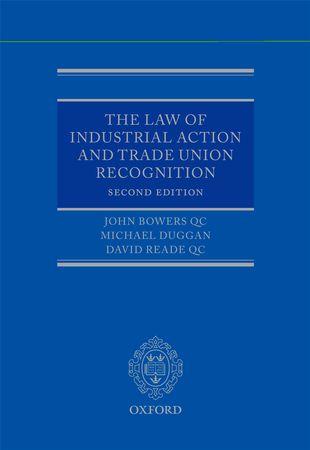
The law relating to industrial action and trade union recognition is complex and rapidly moving. This new edition of The Law of Industrial Action and Trade Union Recognition provides a new and updated analysis of this difficult and technical area of law.
This edition offers comprehensive coverage of all aspects of bringing and defending recognition claims and industrial action injunctions to ensure that nothing is missed when planning a case. It includes full coverage of trade union recognition, employment protection rights, deductions from pay, and the impact of the Human Rights Act 1998 on strikes and picketing.
It also contains step-by-step guidance and forms and precedents to assist practitioners when negotiating and drafting documents. The new edition is completely up-to-date with all changes brought in by amendments in 2005 to the Trade Union and Labour Relations (Consolidation) Act 1992, and the Employment Relations Act 2004. It also covers all recent case law including the decision in BA, Gate Gourmet Metrobus, cases from the European Court of Human Rights, and decisions from the Central Arbitration Committee. Written by a team of expert barristers, it provides an essential source of reference to all involved in this area.